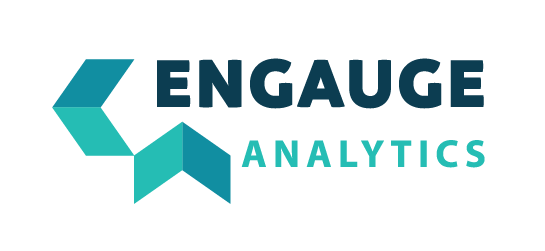You are busy running your business. Or you're building your client's site at your web or marketing agency. Or you're giving your client updated information about how they are doing.
This means you rely on website analytics.
Knowing your website analysis doesn’t have to be grueling and time-intensive. There are a few key stats that can get you going in no time, and give you truly actionable data to help your website win!
- Monthly Analytics
Every time I create a piece of content, I find myself acting like Andy from the Office. In the final season, as the documentary about life in the office was about to air, Andy Bernard, who was manager at the time, starts posting videos of himself on Youtube. He continually watches the counter of the video, refreshing the page to see how many times it's getting viewed (and, ironically and hilariously, bumping up his own views).
Daily views are important, but you will get better stats if you are looking over a month. You get to watch the trends of which days get the most hits. You will get to see how traffic grows on different days as you publish content. And you get to see the beginning of your long tail, the content that gets the most hits for a long time (hint: This is typically where you will find the most conversions).
- Top Content
This little stat is so telling. Out of the selected time period, what is the content that has performed the best? What struck a chord with your customers or audience?
Take note of your traffic. It very well may be the roadmap to greater engagement.
- Visit Duration
You just wrote a 500 word blog. You are so excited about it, and believe this can be life changing for your audience. You check your visit duration, and either one of two things can happen.
What if people are only staying 5 seconds? That means they took a look and bounced.
What if people are staying 2 minutes? They are reading the entire blog and maybe taking some notes.
That little time jump is the difference between a view and engagement.
- Referrers
A referrer is a website that has linked to your site. It could be a search engine, another blog, or a passionate customer that shared your post!
Referrers not only help your content, whether a blog or a product, it also helps your SEO. As others link back to your site and content, search engines get to know you and begin to see you as the expert on your domain!
- Bounce Rate
This is a tricky one, but is easily understood with some simple interpretation. Bounce rate measures whether a person in a particular session on your site visited one page (they hit and bounced out) or numerous pages.
This is where interpretation comes in: Is a bounce important? If you created a landing page with only one call-to-action (CTA), a bounce rate may not be all that important. But if you have numerous products, or a lot of content, then you want to keep people digging through your site. Bounce rate becomes crucial
- Keywords
You are the expert of your domain! No matter your business, your website should indicate that you know what you are talking about, and are trustworthy.
But does your website mention those things that experts would say? This is where your keywords and phrases come in. Explore what your website is actually talking about, and focus your content on what you want to be known for. Make sure your titles mention some keywords, and structure your content around that.
